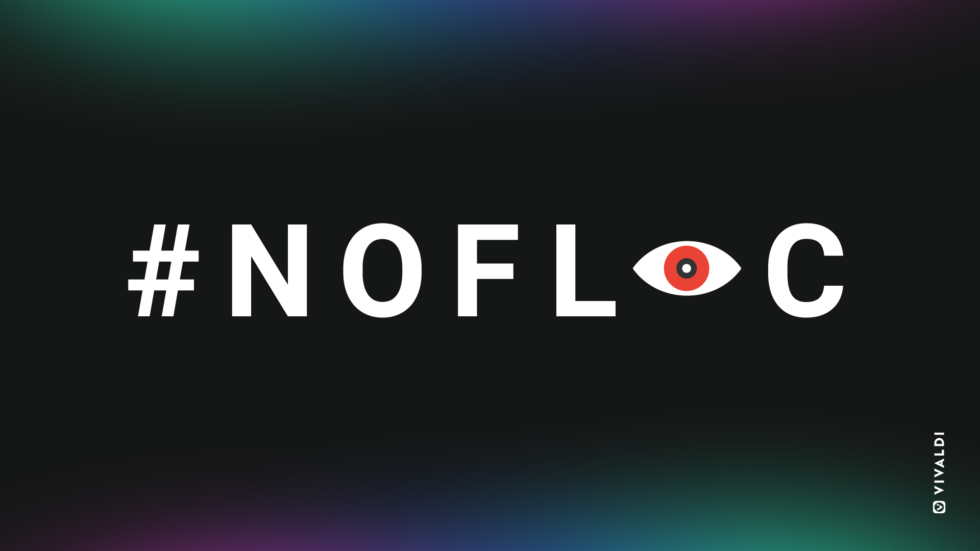latest

Nobody wants anything to do with Google's new tracking mechanism FLoC
Almost all browsers and privacy advocates slam the third-party cookie replacement
Read update
Google is about to shake up the status quo on tracking with its newly proposed browser-based Federated Learning of Cohorts (FLoC) tracking mechanism, which it introduced as a replacement for the outgoing third-party cookies the advertisement industry still heavily relies on. But many privacy advocates like the EFF (Electronic Frontier Foundation) and search engine DuckDuckGo think FLoC could turn out to be even worse and more invasive than third-party cookies, and most browser makers were fast to join in on that stance. Almost all of them have vowed or at least hinted that they won't support FLoC in their products, including those based on Google's open-source Chromium rendering engine also used in Chrome.

Federal court ruling ends random searches of phones (and other devices) at U.S. airports and borders
Random searches of phones, laptops, and other electronic devices at airports (and other ports of entry) in the United States have increased over the past few years. In fact, the practice is so commonplace that some people choose to wipe their phones before traveling. Thankfully, a district court has decided that random searches of devices at ports of entry is unconstitutional, making the searches illegal.

Congress is set to vote on a bill that would prevent any government agency from requiring device manufacturers and software developers to implement backdoors in the encryption models for their products. Dubbed the Secure Data Act, this bipartisan initiative is a surprisingly good step toward keeping our data secure from unauthorized government access.

John Legere Apparently Thinks If He Explains Binge On To You One More Time You'll Agree It's Awesome
Okay, dummy. John Legere has been explaining Binge On to you for days, and you still don't agree with him that it's the best thing since sliced bread? Well, he's just going to tell you about Binge On again using the exact same words he's been using so far. These words are available on the T-Mobile newsroom site, where he can carefully craft an expletive-free message and apologize to the EFF.

If you haven't heard of the Electronic Frontier Foundation, usually shortened to EFF, it's sort of like the American Civil Liberties Union for the Internet and other digital issues. The non-profit organization's mission statement says that it "champions user privacy, free expression, and innovation through impact litigation, policy analysis, grassroots activism, and technology development." You'll rarely see a headline-grabbing story where tech intersects public policy that the EFF hasn't at least commented on, if not actively campaigned for or against.

New Bipartisan Phone Unlocking Bill: DMCA Circumvention Redefined, Permanent Exemption For Carrier Unlock
The legality of certain phone modifications in the United States, particularly those that allow phones to be used on wireless carriers for which they weren't
The legality of certain phone modifications in the United States, particularly those that allow phones to be used on wireless carriers for which they weren't originally intended, is currently on a congressional see-saw. Every three years, the Librarian of Congress has to approve or extend an exemption of the infamous Digital Millennium Copyright Act (DMCA) to allow or deny consumers the right to unlock (read: carrier unlock, and in some cases rooting/jailbreaking, but not unlocking bootloaders) their phones by circumventing digital rights management. Congress let the exemption slide earlier this year - read the gory details here. Now a new bill has been entered that, if passed, would grant a permanent exemption to the DMCA for carrier unlocking, among other things. The Electronic Frontier Foundation has an exhaustive write-up of House Resolution 1892, the "Unlocking Technology Act," which they've given their initial support.

Humble Bundle For Android 3 Available Now - 5 Cross-Platform Games For Charity
It's that time again, indie gamers: the much-loved Humble Bundle has returned for a third go-round on Android. As before, you can name your own price for
It's that time again, indie gamers: the much-loved Humble Bundle has returned for a third go-round on Android. As before, you can name your own price for popular Android games Fieldrunners, Bit.Trip Beat, SpaceChem and Uplink, giving the cash to worthy non-profits Child's Play, the Electronic Frontier Foundation, or a combination thereof. If you pay more than the average (currently just below $6) you get a bonus game, Spirits. All games include a free digital soundtrack and desktop versions for PC, Mac and Linux, with Steam integration for those who are so inclined.

This a cause I think we can all get behind. Back in 2010, the Copyright Office in the Library of Congress issued a rulemaking statement exempting smartphones and DVDs from reverse engineering laws under the DMCA. Previously, companies like Apple had used these provisions to threaten criminal prosecution (as well as civil action) against those who "jailbroke" (rooted) devices such as the iPhone (or iPad). The exemption to these penalties put in place by the Copyright Office extended to the "jailbreaking" (or, as we know it in the Android community, rooting) of all smartphones (it also extends to things like bootloader unlocking). Now, that exemption is about to expire, if the rulemaking committee does not renew it. The EFF wants your help, in the form of submitting writings to the Copyright Office explaining why the exemption should not be allowed to expire.

Trevor Eckhart, a developer involved in uncovering a huge security vulnerability that affected several HTC devices, was recently threatened by Carrier IQ (CIQ), a company involved in gathering various forms of user data and sending it to carriers or manufacturers for analysis. For those who haven't been following the story, here's what happened:








